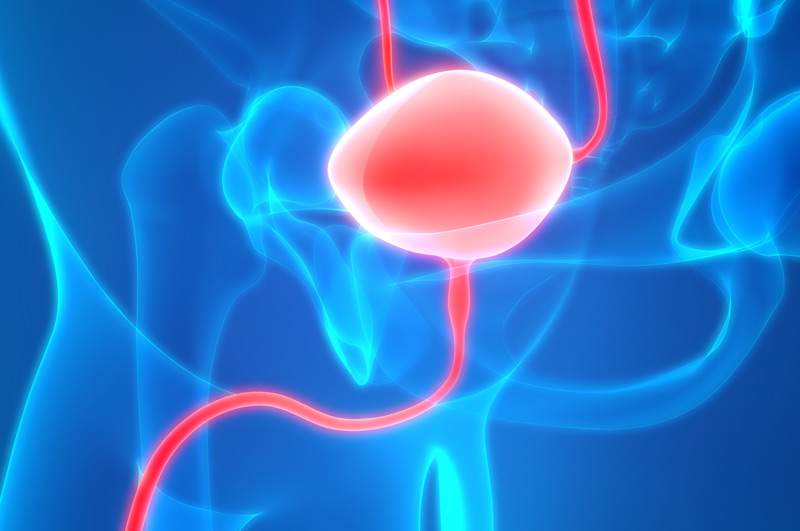Bladder stones are solid masses that form in the urinary bladder, composed of calcified or non-calcified materials such as calcium oxalate, ammonium urate, calcium phosphate, cystine, and calcium-ammonium-magnesium phosphate.
Symptoms of Bladder Stones
Bladder stones often don’t cause specific symptoms and may go unnoticed. They are typically discovered when diagnosing other urinary conditions, such as weak stream, suprapubic pain, dysuria, terminal hematuria, and bladder emptying issues.
What Causes Bladder Stones?
The primary causes of bladder stones include benign prostatic hyperplasia (BPH) and neurogenic bladder disorders. Most bladder stones form within the bladder, although some may originate from the kidneys as a stone or a sloughed papilla. Foley catheters are also a known cause, particularly in patients with spinal cord injuries, where improved urologic care has significantly reduced incidence rates.


Who is at Risk of Developing Bladder Stones?
The incidence of bladder stones is decreasing globally due to widespread use of BPH medications. Men with a history of nephrolithiasis, lower urinary pH, gout, and low urinary magnesium levels are at higher risk. Additionally, urinary tract infections with significant intravesical prostatic extension also increase the risk. Among children, boys are more likely to develop bladder stones than girls.
Diagnosing Bladder Stones
Diagnosis may involve a urinalysis to detect blood, nitrates, leukocytes, low urinary pH, or a urinary tract infection (UTI). Imaging tests like x-rays may identify bladder stones but are less effective for non-calcified stones. CT scans, bladder ultrasounds, and cystoscopy are more reliable methods for detecting bladder stones.
Treatment Options for Bladder Stones
Uric acid bladder stones may be treated with oral alkalinizing agents like potassium citrate, often supplemented with sodium bicarbonate. Regular monitoring of serum potassium and urinary pH levels is necessary to maintain an optimal pH for dissolving stones. Patients with a history of nephrolithiasis might need a metabolic evaluation and a 24-hour urine test to identify kidney stone risk factors and guide prophylactic therapy.

Calcium phosphate stones can be managed with periodic bladder instillations of 1/4% acetic acid solution, especially in patients with debris-clogged urinary drainage tubes. Surgical treatments include endoscopic surgery, cystolitholapaxy, extracorporeal shockwave lithotripsy, disruptive or ablative therapy, percutaneous suprapubic cystolitholapaxy, transurethral resection of the prostate (TURP), and open suprapubic surgery. The appropriate treatment depends on the size, type, and location of the stones, as well as the patient’s medical history.
Contact UCI Pelvic Health Center for Bladder Stones Treatment
If you are experiencing symptoms of bladder stones, such as weak stream, suprapubic pain, terminal hematuria, dysuria, and bladder emptying issues, or have been diagnosed with this condition, the UCI Pelvic Health Center is here to help. Our expert team specializes in the diagnosis and treatment of bladder stones, utilizing advanced imaging techniques and personalized treatment plans to effectively manage and resolve your condition. Whether your case requires non-surgical interventions or surgical procedures, our experienced professionals provide the highest standard of care.

